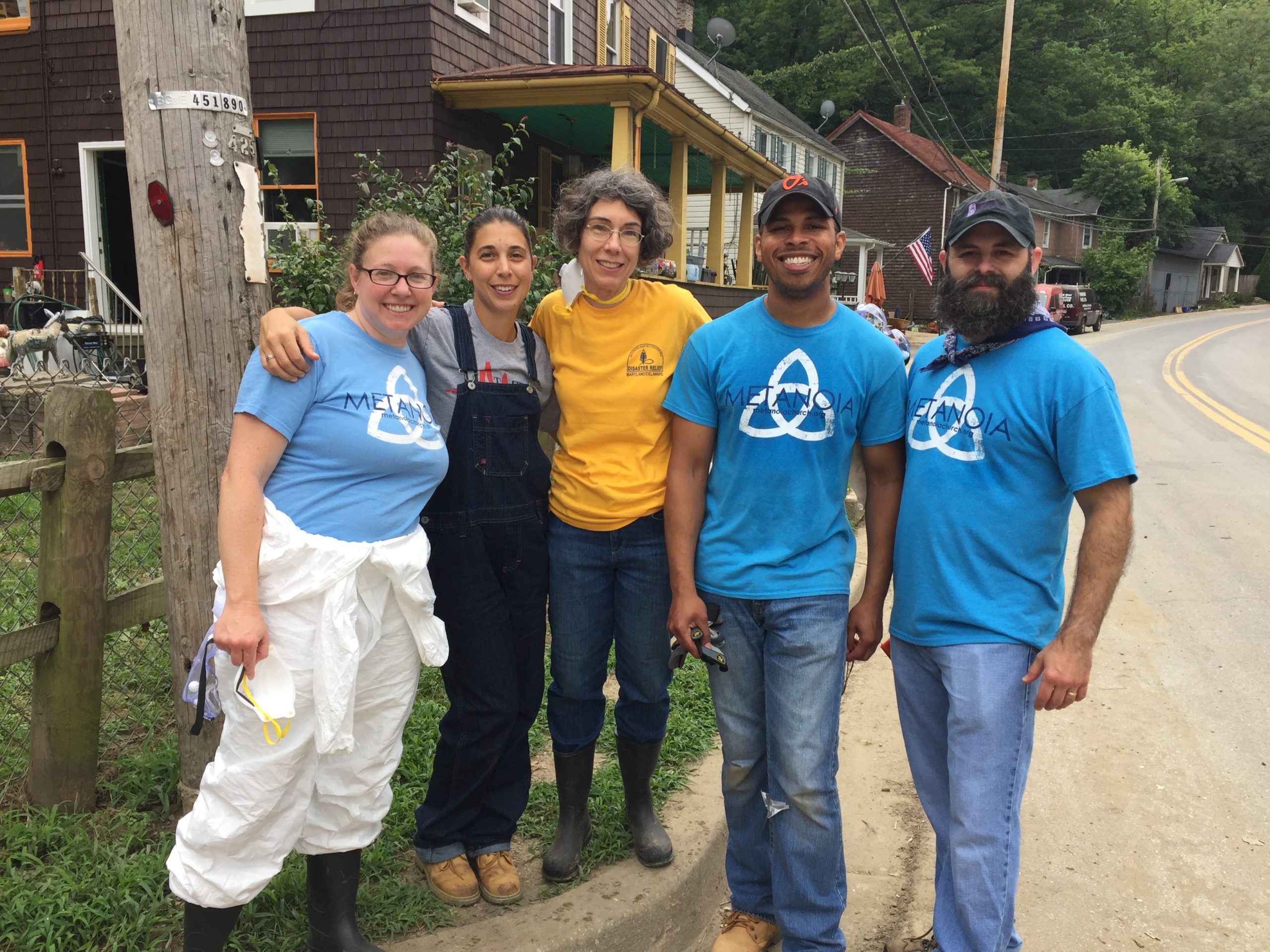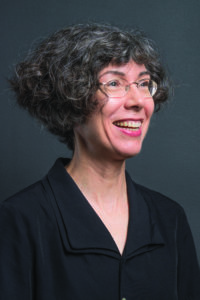Udovich focuses on community engagement

By Sharon Mager
Columbia, Md. — Ellen Udovich, the Baptist Convention of Maryland/Delaware (BCM/D) community engagement consultant, recently celebrated 20 years of serving the Lord with the BCM/D and has become a recognized figure of organized, effective and Gospel-centered compassion, particularly in the areas of intentional ministry to local communities and Disaster Relief (DR). A Maryland native, she accepted Christ at Camp Wo-Me-To as a young person, and has lived and served in Baltimore for most of her adult life, ministering to Maryland and Delaware churches and helping them to reach their communities for Jesus.

Ellen Udovich
Udovich comes to mind when most people think of Maryland/Delaware Disaster Relief (DR). She has directed those efforts for almost two decades, but she emphasizes that her primary ministry is, and has always been, community engagement — helping churches love and effectively serve their communities.
Community engagement ministry is “whatever a church senses God is calling than to do as a way to put hands and feet to the Gospel,” she explains. It may be helping churches start an English as a Second Language class or a school partnership. She comes alongside churches and provides them with encouragement, training, and support.
Disaster Relief is a part of that ministry, Udovich says, She will be transitioning away from the role of DR director, although she hopes to still work in disaster response on the “church side” and help churches minister in their communities in the weeks and months following a disaster.
Churches on the Front Lines
“The churches are on the front line,” Udovich explains. “Churches are the first responders. If they don’t have the capacity to meet a DR need themselves, they will team up with other churches in their association. If the need is still too great, they will call DR and we’ll come and support them.”
DR volunteers are committed to partnering with or representing the local church in the community.
“When we (DR volunteers) are on the field, we don’t say, ‘We’re Southern Baptist Disaster Relief.’ We say, ‘Oh, we’re here supporting our partner, “XYZ Church” down on Main Street.’ We make that very clear. As much as we can, we involve that local church in what we’re doing, but even if none of them are able to help out — because they may be impacted themselves — we want the community to think it was that church. We want to leave a taste of that church in their mouth so that when they drive by the church years later, they’ll say, ‘that’s the church that helped us.’”
When DR teams complete their job and are ready to leave an area, they pray with the people they’ve been working with and they ask, “Would you mind if we ask our partner church to check in on you to make sure you’re okay?” Those are great opportunities.
Udovich mentions Leonardtown Baptist Church in Leonardtown, Maryland, and Maryland City Baptist Church in Laurel, Maryland, as good examples of churches that seized those opportunities to love their neighbors. Leonardtown Baptist Church followed up on DR leads and baptized several new believers as a result. Maryland City Baptist Church continued helping people in a trailer park following a natural disaster by opening their doors and ministering to them in a relaxed air-conditioned environment. The church ladies cooked meals and spent time pampering the weary victims. People came to know the Lord as a result of that care and compassion and those new believers are still attending and serving at that church.
When DR workers head back to their homes, the churches are still there and can follow up. “We (BCM/D DR) can chop up the hard ground and plant some seeds, but that church helps to water and cultivate those seeds and helps them come to know Christ,” says Udovich. “They can help the whole community heal. The church can be salt and light.”
Udovich also refers to Adam Feldman, pastor of Metanoia Church in Ellicott City, Maryland, who, along with Pastor Jesse Florida and other members, was instrumental in working with local, county, and state organizations and denominations to be leaders in rebuilding the community following a devastating flood.
That excites Udovich, and she looks forward to working on the “church side” of DR. She explains that it is challenging to balance the responsibilities of directing DR while also doing an excellent job of loving and serving churches and helping them learn how to love their communities.
“Pray, Pray, Pray”
She heavily emphasizes the need for prayer. Churches must “pray, pray, pray” before starting a ministry, Udovich insists. Prayer walking is one powerful tool. So is praying for people in the community by name. What are the names of the teachers and staff at your local elementary school, the fire and police chief, the local funeral director? Pray for these people by name for several months, she suggests, before approaching them to ask about the needs in the community.
“If we’re not praying for something earnestly, why do we think God will bother to show up and do something about it if we’re not?” she questions.
She adds that it’s essential to go back and follow up with people your church has been praying for. She advises asking about both physical and spiritual needs and then trying to meet those needs when possible. It is also important to pray with these people if they are open to receiving prayer. If she senses they are not comfortable, she will stop and pray for them when she gets into her car.
Also, Udovich suggests asking God to direct you to the people He has prepared. “We pray as we go, asking, ‘Who is your Spirit already speaking to? Of these ten families we’re working with, show us where to concentrate our efforts.’
“Lynn Davis (a former BCM/D international student minister in Ocean City) taught me this. She had contact with thousands of kids each summer and every spring she would pray, ‘Draw my eyes to the ones that you are preparing because I can’t have long conversations about Christ with everyone … draw me to the ones I need to be focusing on this summer.’ And how many of them over the years accepted Christ and were baptized or said, ‘please give me a Bible in my language so I can read it when I go home?’
“Your church may be doing bereavement ministry, after school tutoring, partnering with another church for a food ministry, packing backpacks, ministering to military families or veterans, or running a Celebrate Recovery program. We’re serving all of these people because God said, ‘love your neighbor,’” she concludes.
Good Deeds, Good News
Udovich emphasizes that reaching out to the community in love is never doing good deeds for the sake of doing good deeds. “It’s how do we put good deeds and the Good News together,” she summarizes.
“There’s a saying that ‘Good deeds build a bridge that the Good News can travel across.’” Udovich says, referring to the book, “The Externally Focused Church,” written by Rick Rusaw and Eric Swanson.
The book states, “Good works are the complement but never the substitute for the Good News.”
She says, “We do good to bless the community because not everyone Jesus fed followed Him, but He fed them anyway because it gave honor to His Father.”
